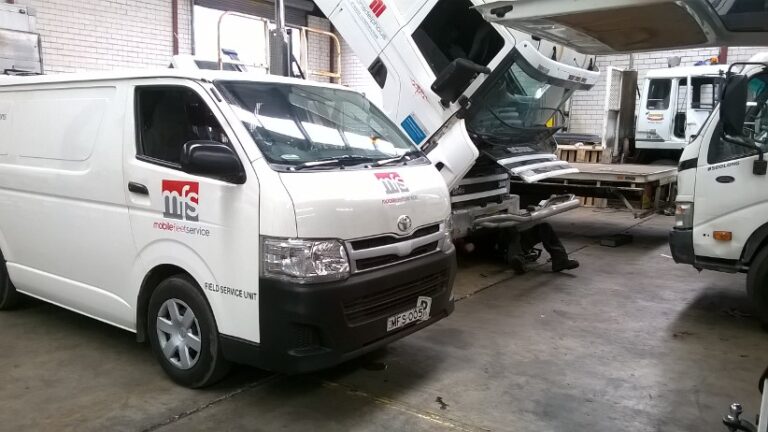– By Gerard Norsa –
With the advent of improved, compact diagnostics and communications technology, mobile service providers have increasingly become a viable option for fleet managers looking to reduce their overall costs and increase the utilisation of their fleet assets.
For fleet managers that don’t have their vehicles serviced in-house, scheduled service and maintenance can see a vehicle withdrawn from active duty for days. In addition, the process of delivering and returning vehicles from a third party service facility can either involve the diversion of man-hours for the transportation of fleet assets or additional towing or freight costs.
Meanwhile, unscheduled servicing adds an even more complex layer of costs, particularly when fleet assets fail out on the road where vehicle retrieval would often be otherwise required.
According to Rob Wilson, Director of independent automotive fleet consultancy, 4C Management Solutions, mobile automotive service providers typically originated to service the retail market but there has been a recent surge in active marketing to fleet management organisations and managers.
“Occasionally, there is a new entrant in the fleet maintenance industry offering mobile services but more often it is existing players who are expanding their service offerings to include mobile services,” Wilson said. “An interesting case in point being NRMA Heavy Vehicle Road Assist and RACV who have both started introducing services designed for business.
“In the plant and equipment industry, meanwhile, manufacturers often offer mobile technical support and this has increasingly become a significant consideration to the fleet operator during procurement decision-making processes.”
Pure play mobile servicing organisations such as Lube Mobile and Mobile Fleet Service have a long history of servicing fleet customers and are both finding that changing business environments are making their solutions more viable.
Martin Cuthbert, Managing Director of Mobile Fleet Service said that he has had to recently expand the number of mobile service units operating due to increased demand.
“We do operate a large workshop but demand for our on-site servicing of fleet vehicles continues to grow,” Cuthbert said. “I believe this can be attributed to customers seeking reduced downtime of their vehicles and the improved staff productivity that the service offers.
“This increase in demand means there will always be demand for mobile, onsite servicing and because there are very few authorised dealers offering on-site or mobile service, it is a great opportunity for independent mobile service providers to differentiate.”
As well as reduced downtime and convenience, Cuthbert also said that mobile servicing means that customers benefit from being able to engage directly with the technician to discuss issues and concerns while they also get to see exactly what work is being undertaken.
“There are some limitations however to mobile repairs such as major engine and transmission repairs, which really can only be performed in a workshop,” Cuthbert said. “In addition, heavy traffic and weather conditions can sometimes affect the booking time and viability of a mobile service but these are only minor negatives compared to the positives.”
4C Management Solutions’ Wilson said that utilising mobile solutions can play a role in meeting the overall servicing, maintenance and repair requirements of fleet managers. He agreed that they offer the opportunity to save transport time as well as towing or float costs.
“Mobility can support more up-time for vehicles and therefore greater productivity while they can also reduce the requirements for smaller in-house workshop facilities,” Wilson said. “However, there are limitations to the extent of repairs that can be undertaken on-site and there are safety and liability matters that need to be considered.
“Mobile servicing and repair is worth considering for fleet managers as part of a package of measures for the upkeep of their fleet vehicles but, just like any other service arrangement, the provider needs to be assessed for suitability. You have to take into account a range of matters such as; capability, skills, certification and compliance with the company’s internal policies”.







